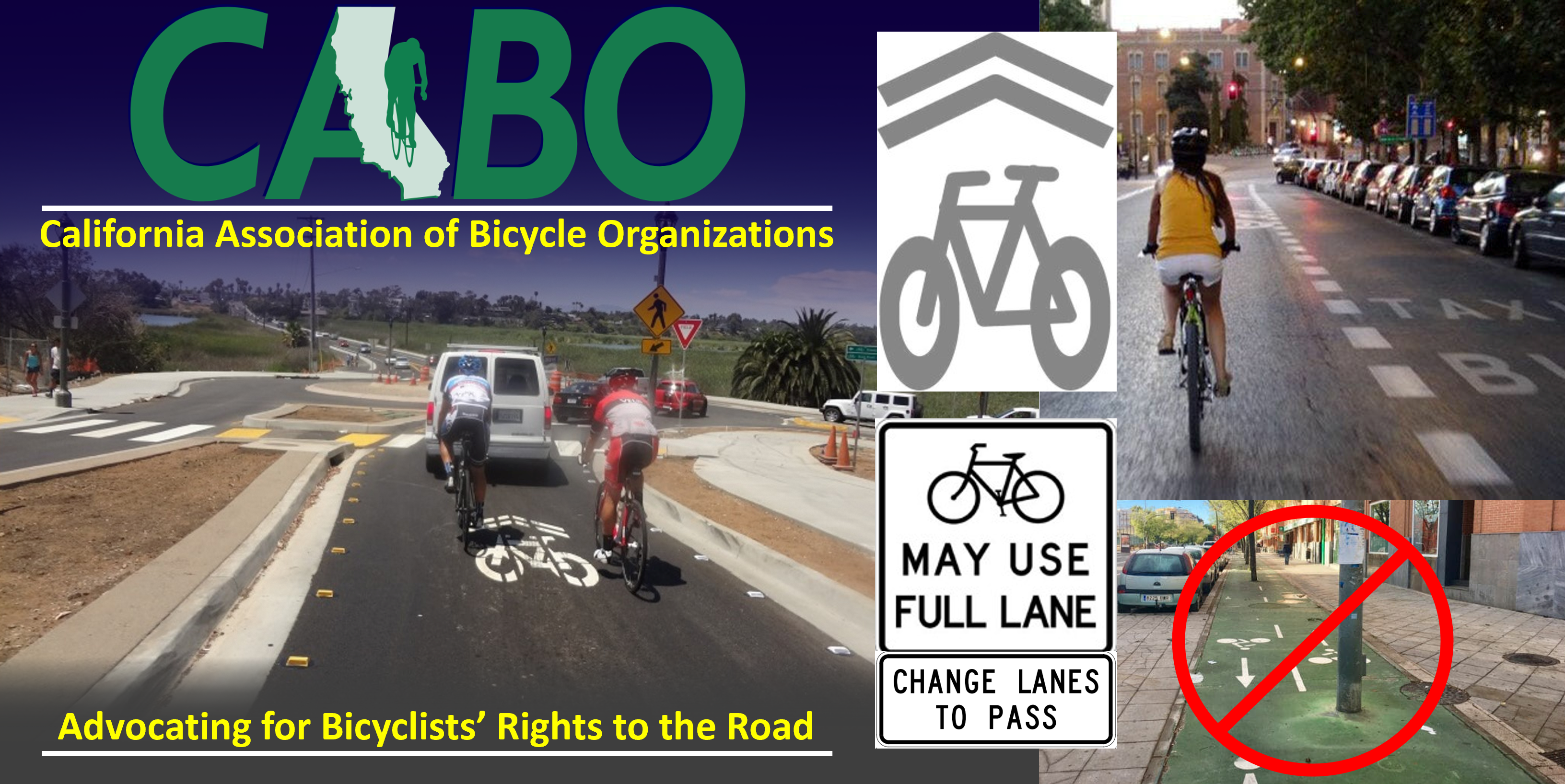Senate Bill 672 (Fuller) is our effort to remove the Sunset from the existing/prior legislative requirement that new or upgraded on-demand/traffic actuated signals are to be able to detect bicycles and motorcycles. When our origin bill to require sensitive signals was passed there was an expiration date included – a Sunset. That Sunset is to trigger – end the requirement – at the end of this year/2017 if our SB 672 does not get passed and signed!
Success so far… Assembly Committee passed the bill w/o amending. Now it goes to full Assembly with a good likelihood of passage… and signature from Governor.
A communication – call, email, visit – with your own Assemblymember could be useful.
Later we’ll ask for an encouragement to be sent to the Governor to sign it into law.
More info.
It seems pretty clear to me and everyone I talk to that traffic signals should be able to detect and work for people bicycling and motorcycling as well as for people using motor vehicles/cars. It had been surprising to many people there had been no requirement or specifications in California for traffic signals to detect us – we had been invisible! Our previous efforts to get the initial legislation passed and to help Caltrans (thanks to prodigious efforts from CABO’s Bob Shanteau and Alan Wachtel!) establish guidance criteria for detection were successful though we had to accept the Sunset provision to get it passed originally.
The Assembly Appropriations Committee Chair Loretta Gonzales Fletcher and Assemblymember Todd Gloria have helped us get it passed through that committee … mayby your Assemblymember did too? Our Lobbyist, James Lombardo, provided some interesting insights about the legislative/political issues that almost held up our bill. It seems that even relatively minor bills can get caught up being partisan issues. “Sad.”
We heard that someone at Caltrans apparently originally gave info that the bill implementation would cost $400K, making passing it a tougher sell. We lobbied for more accurate cost estimates and got ’em! See attached decision, “FISCAL SUMMARY – Removing the sunset of the traffic-actuated signal provisions has no fiscal impact because it simply allows current practice to continue.”
Here’s the bill -
THE PEOPLE OF THE STATE OF CALIFORNIA DO ENACT AS FOLLOWS:
SECTION 1. Section 21450.5 of the Vehicle Code is amended to read:
21450.5. (a) A traffic-actuated signal is an official traffic control signal, as specified in Section 445, that displays one or more of its indications in response to the presence of traffic detected by mechanical, visual, electrical, or other means.
(b) Upon the first placement of a traffic-actuated signal or replacement of the loop detector of a traffic-actuated signal, the traffic-actuated signal shall, to the extent feasible and in conformance with professional traffic engineering practice, be installed and maintained so as to detect a lawful bicycle or motorcycle on the roadway.
(c) Cities, counties, and cities and counties shall not be required to comply with the provisions contained in subdivision (b) until the Department of Transportation, in consultation with these entities, has established uniform standards, specifications, and guidelines for the detection of bicycles and motorcycles by traffic-actuated signals and related signal timing.
(d) This section shall remain in effect only until January 1, 2018, and as of that date is repealed, unless a later enacted statute, that is enacted before January 1, 2018, deletes or extends that date.
Jim Baross
Bikes Right; and Left & Center
Bicycling Instructor/Advocate
CABO President
CBAC Vice-Chair
SHSP Bicycling Co-Chair
SDCBC Board Member
Grandfather, Husband, Father, Brother
Friend…
